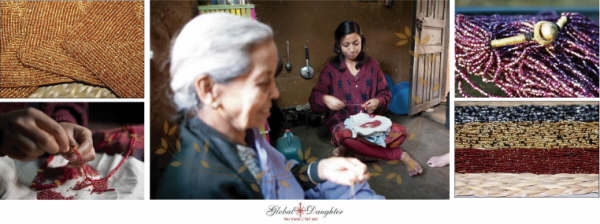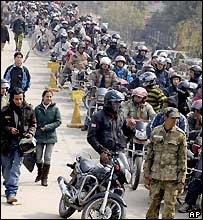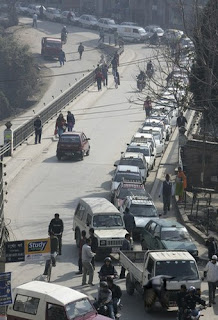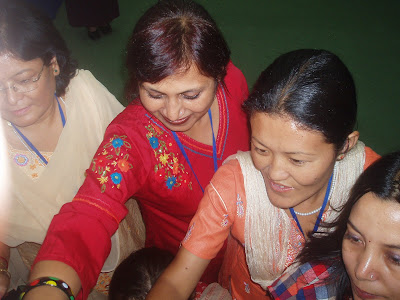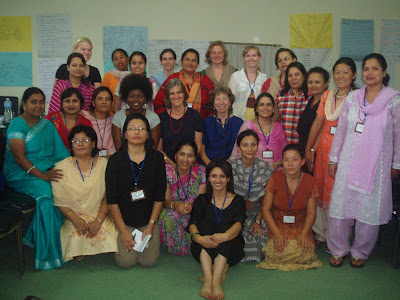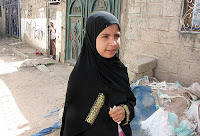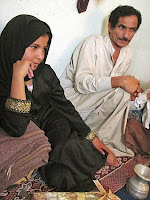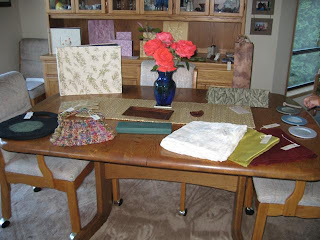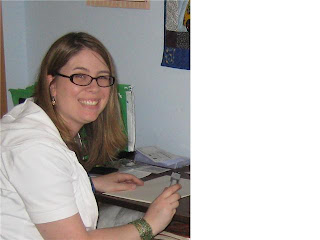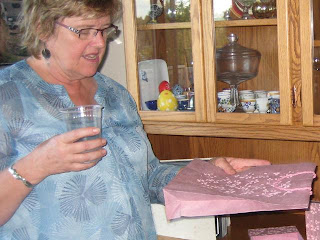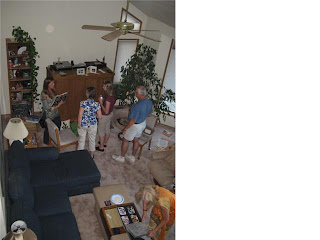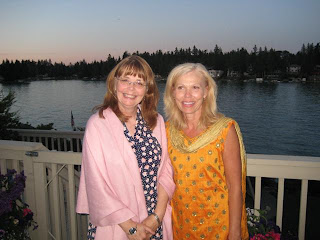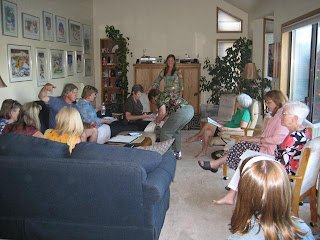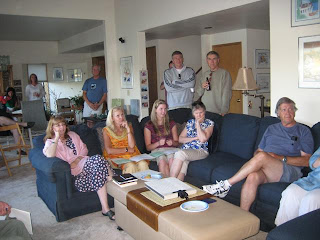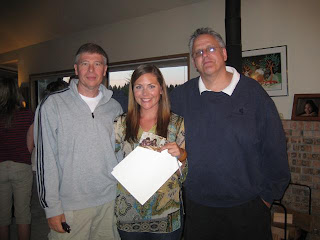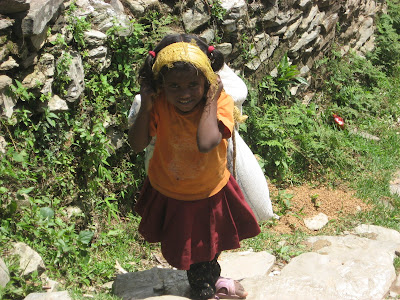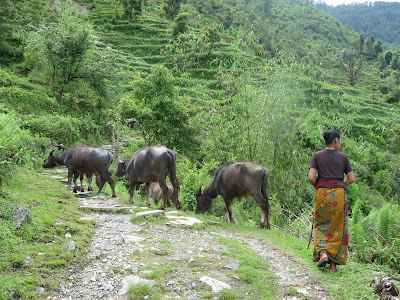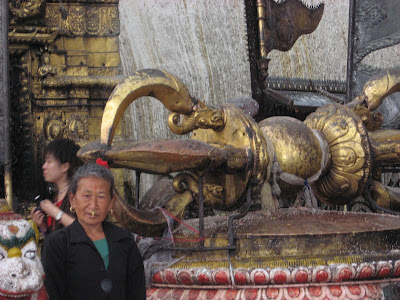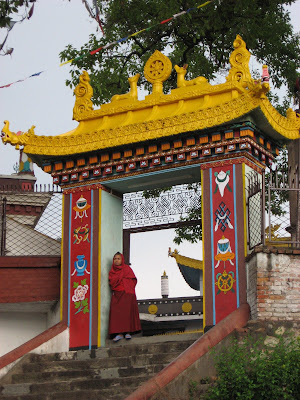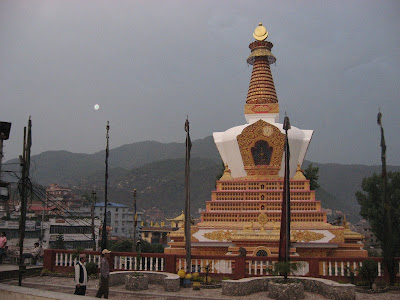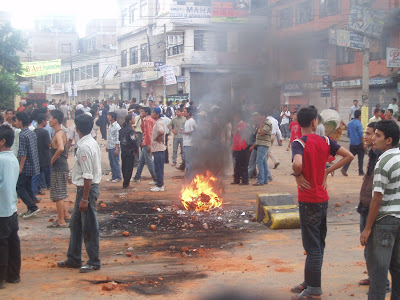
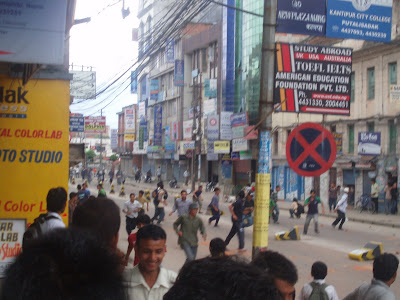
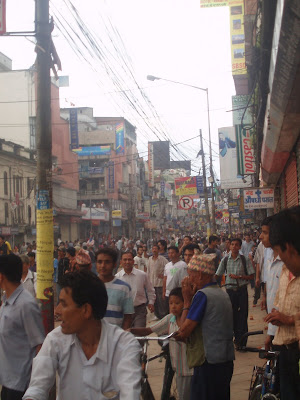
Burning tires, stone-throwing protestors, violent police officers...It all happens in Nepal. Even though these things are common here, it is hard to get used to. I was caught in a riot last year where students were hurling stones at a bus driver who just ran over a kid on a bike. The driver was bloody and the boys were mercilessly pounding him in the middle of one of the busiest streets in the city. I just happened to be down the alley he used to escape. As I was approaching the main road a mob came directly for me and I turned around and ran for it. It was something else. I had been in the country for like 3 weeks and my mind was already on dream mode.
So today I was on my way to drop off some publications at the Indigenous Peace Commission in about the same area as I was caught up last time, ironically. There were people lining the alley way to the street starring and I noticed that all the shops had their metal covers down. I continued to walk and then I heard smashing noises and guys shouting and hollering. I took a few steps around the corner and, I swear, just like before, a mob came right at me. I took off running, with about 40 other people, kids just out of school, mothers, old people. We all made a mad dash as the mob came at us one way and the police in full blue fatigues with riot gear came at us the other way. They were wielding sticks and shouting at the people. I turned around as the two groups met up together and I saw the police absolutely wailing on this guy who looked like he wasn't even involved in the vandalism. I think the guy just got caught up like everyone else. It was beyond disturbing. Really, they were hitting this guy like he was a Rawlings baseball. I cursed myself for not having my camera on hand.
I ran back to the office, about 2 minutes away and decided to stay in doors for a bit.
After about two hours I left work and headed back to that same road on my way home. I thought everything would have cooled off (and I was a tad curious). What I saw was absolute craziness. Young men/boys on the street hurling bricks and stones at police in full gear. There were about 70 guys in the street and what looked like 100 police. People were standing on the sides of the street gawking and screaming. Tires were burning in the streets and the air was thick with black smoke. I tried to inch closer to the street, but every time the police would charge the mob they would all retreat down alleys. I did manage to get a few shots with the office camera. And a video. My heart was pounding the whole time. It felt like I was at the zoo and all the wild animals had been set free. I Was taking video when a guy came up to me with blood dripping down his hand. He said, "Do you have a handiplast?" Are you kidding me?! The guy needed a surgeon, not a bandaid! Just as I said "no," I heard in perfect English.."tear gas, tear gas." I guess there is no Nepali equivalent. People came running towards me and I ran along with them as the police charged.
As I was headed back into the alley a guy past me and put his hand right on my private parts. Full-on, intentional gesture. He took off running and looked back at me as I cursed him. I lunged in his direction, full of adrenaline already- prepared to punch him. Then I saw he had a brick in his hand so I stopped. I felt totally violated and as if I needed anything else to happen that day to question humanity, this animal had to show the worst of the mob mentality. The mob in Nepal is no joke. Guys do this to women when there are crowds. The women here don't do much, but some do slap the men. I have had it happen to me before in a mob on New Years Eve and I actually did punch the guy in the face. I think he was too drunk to feel anything, though. It is the most humiliating and degrading thing to have happened. It makes me sad because it is such a small percentage of the population that are this ridiculous. On my way home that night, hurt, confused, angry and ready to go home, a little girl came up to me on the street and kissed my hand. She was not begging, she was with her mom and she had a huge smile on her face. It was very touching and just what I needed at that moment. How can a place that has innocence and kindness like this be so violent and disturbed? These two experiences are the perfect Nepali paradox of violence and peace.
The reason for this violence? Youth leagues and student unions all over the country are protesting the actions of the newly-appointed Vice President. He took the oath of office last week with the President, both of whom are the first to be appointed to these posts in the history of Nepal. The VP took the oath in Hindi. This is the problem. He is a Nepali, born and raised, so he should have taken the vow in Nepali language, or at least in his mother tongue, Maithli. Why did he use Hindi (the official language of India) and embarrass himself and his country during what was supposed to be a celebratory and proud moment for all Nepalis? This has caused an increase in anti-India sentiment (which is always there anyways) and an all-out bash of the new VP, his political party and his home town. People are burning the VP's effigy in the streets and shutting down the highways in protest. He has been given one week by the courts to give a written explanation of why he gave oath in Hindi and not Nepali. We shall see if the people accept what he has to say; I am pretty sure they won't.
The reason for this violence? Youth leagues and student unions all over the country are protesting the actions of the newly-appointed Vice President. He took the oath of office last week with the President, both of whom are the first to be appointed to these posts in the history of Nepal. The VP took the oath in Hindi. This is the problem. He is a Nepali, born and raised, so he should have taken the vow in Nepali language, or at least in his mother tongue, Maithli. Why did he use Hindi (the official language of India) and embarrass himself and his country during what was supposed to be a celebratory and proud moment for all Nepalis? This has caused an increase in anti-India sentiment (which is always there anyways) and an all-out bash of the new VP, his political party and his home town. People are burning the VP's effigy in the streets and shutting down the highways in protest. He has been given one week by the courts to give a written explanation of why he gave oath in Hindi and not Nepali. We shall see if the people accept what he has to say; I am pretty sure they won't.
